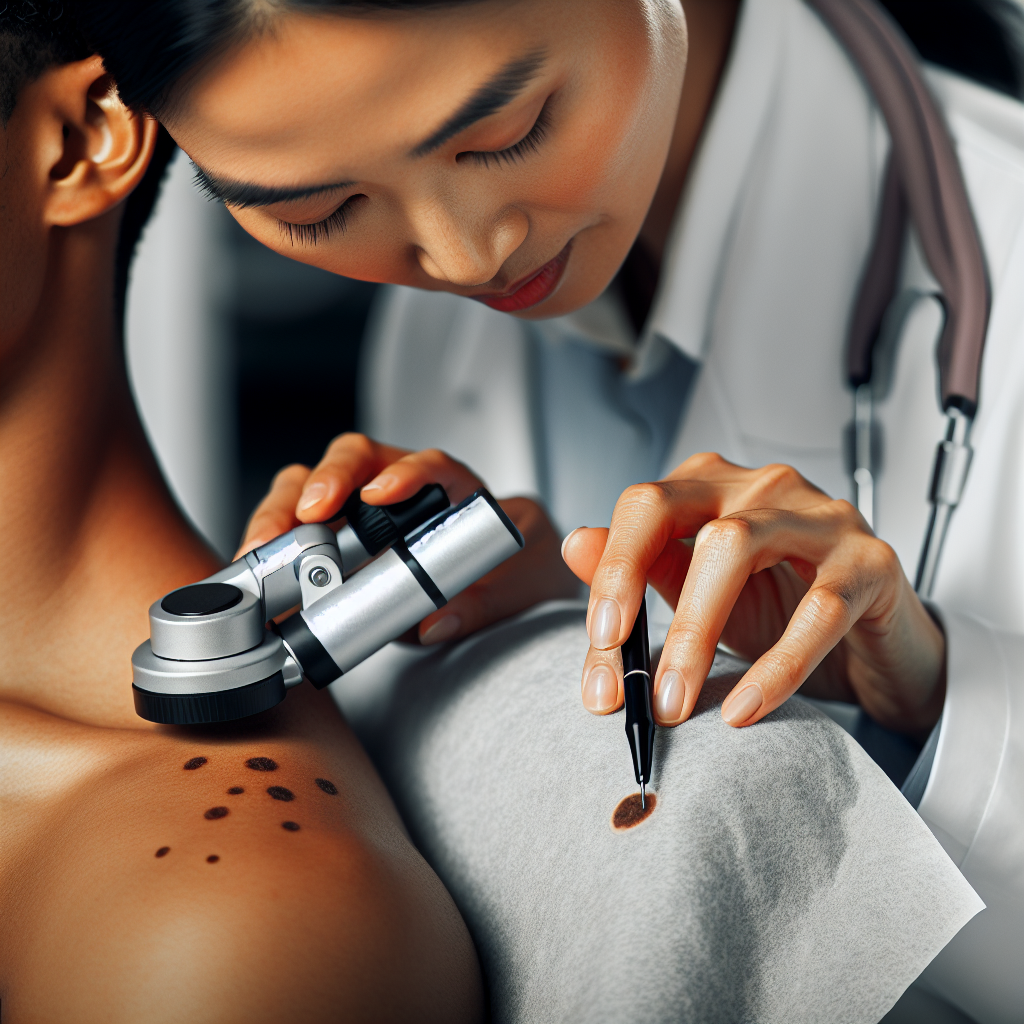Skin health is a critical aspect of overall wellness, yet it is often overlooked until issues arise. Regular skin check-ups are not only vital for detecting skin problems early on but also for maintaining vibrant and healthy skin. In this comprehensive guide, we delve into the importance of skin health awareness and the benefits of routine dermatological evaluations.
Understanding Skin Health
The skin is the body’s largest organ and performs several key functions, from protecting internal organs to regulating body temperature. It’s a window to our overall health, often reflecting the state of our internal systems. Maintaining healthy skin is essential for more than just aesthetic reasons—it’s crucial for our overall well-being. To ensure skin health, it’s important to have a foundational understanding of skin care, which can be further explored on Avix Health’s Skin Health page.
The Role of Regular Skin Check-Ups
Dermatological check-ups allow for the early detection of skin conditions, including various skin cancers, which are among the most common types of cancer globally. Early detection is paramount as it can lead to more effective treatments and better outcomes. During a check-up, dermatologists look for unusual moles or skin changes that could indicate potential problems.
Early Detection of Skin Cancer
Skin cancer can take many forms, and it is not always easy to distinguish a benign mole from a malignant one without professional help. Regular check-ups significantly improve the chances of catching skin cancer early. For an in-depth understanding of the types of skin cancer and why early detection is life-saving, refer to Understanding the Different Types of Skin Cancer.
Monitoring Skin Conditions
Conditions like psoriasis, eczema, and acne can also be managed more effectively with the guidance of a dermatologist. Regular visits can help in adjusting treatment plans and preventing complications. For individuals struggling with chronic conditions, these check-ups are indispensable.
Education and Prevention
Dermatologists can provide personalized advice on how to care for your skin based on your skin type, lifestyle, and environmental factors. They can also recommend preventive measures such as the appropriate use of sunscreen to protect against UV damage. For more on this, the article The Importance of Sunscreen in Skin Health offers valuable insights.
When to Schedule a Skin Check-Up
While it’s a good practice to self-examine your skin regularly, professional evaluations are recommended at least once a year. However, if you notice any new or changing moles, or if your skin suddenly reacts differently, it’s crucial to book an appointment as soon as possible.
The Examination Process
During a skin check-up, a dermatologist will conduct a full-body examination, looking for any signs of skin abnormalities. They may use a dermatoscope, a tool that provides a magnified view of the skin, to examine suspicious areas more closely.
External Resources for Further Information
To complement what you learn during check-ups, several external resources can provide additional valuable information:
- The Skin Cancer Foundation offers in-depth resources on skin cancer prevention, detection, and treatment.
- The American Academy of Dermatology provides a plethora of educational materials on various skin conditions and their management.
- For insights into the latest research on skin health, the National Institute of Arthritis and Musculoskeletal and Skin Diseases is an excellent resource.
The Importance of a Personalized Skin Care Routine
A tailored skin care routine is crucial for maintaining skin health. This involves choosing products that are suitable for your skin type and addressing any specific concerns you may have. For guidance on personalizing your skin care, the article Personalizing Skin Care Products for Unique Skin Types is a useful resource.
Additionally, incorporating professional treatments can enhance your skin care regimen. Dermatologists can recommend treatments such as chemical peels, laser therapy, or microdermabrasion that can help keep your skin in top condition.
The Link Between Lifestyle and Skin Health
Your lifestyle choices, including diet, exercise, and sleep patterns, play a significant role in the health of your skin. A balanced diet rich in antioxidants and essential nutrients can help protect your skin from oxidative stress. Regular exercise improves circulation, which can boost skin health, while adequate sleep allows the skin to repair and regenerate. For more on how lifestyle impacts skin health, explore the article The Role of Diet in Managing Rosacea Symptoms.
Advanced Skin Care Technologies
The field of dermatology is continuously evolving, with new technologies and treatments emerging that can improve skin health and appearance. From advanced screening methods for skin cancer to innovative moisturizing techniques that help maintain the skin’s barrier function, staying informed about these advancements can be beneficial.
Conclusion
Skin health should be a priority in your wellness routine, and regular dermatological check-ups are a crucial part of this. By staying informed, adopting a personalized skin care routine, and making healthy lifestyle choices, you can maintain vibrant, healthy skin. Remember, your skin’s health is not just about looking good—it’s about ensuring your body’s largest organ is functioning at its best.
In conclusion, embracing regular skin check-ups and being proactive about skin health can lead to early detection of issues, better management of skin conditions, and overall healthier skin. By utilizing the wealth of information and resources available, including expert articles and specialized external websites, you can take an active role in nurturing your skin’s well-being for years to come.



